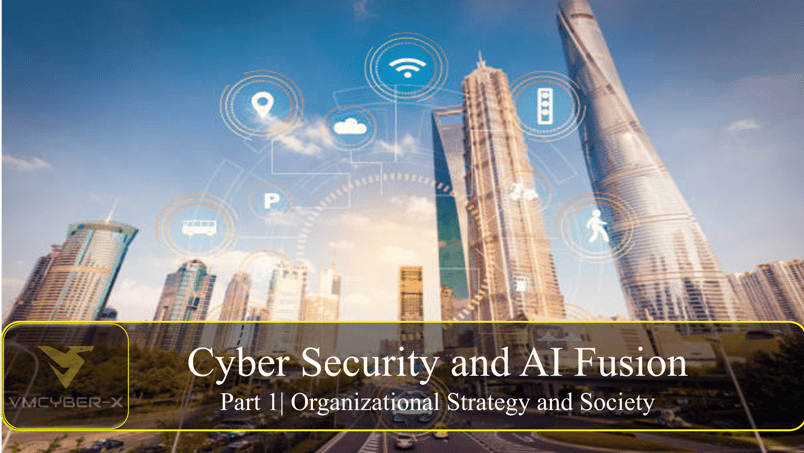Cyber Security and AI Fusion - part 1 | Organizational Strategy and Society
Digital transformation has been reshaping the relationship between humans and machines, with Artificial Intelligence (AI) playing a central role in this process. Driven by advancements in data, algorithms, and computational power, AI has made significant impacts across various sectors. However, its use also brings ethical, legal, and security challenges. This article explores the application of AI in cybersecurity, focusing on real-world cases and the organizational context.
TECHNOLOGY
Mario Conte
5/2/20253 min read


Society:
Artificial Intelligence (AI) has transitioned from a futuristic promise to an essential part of modern society, transforming sectors like healthcare, agriculture, and education through improvements in efficiency, personalization, and accessibility. However, its rapid advancement raises serious ethical concerns, particularly regarding algorithmic biases, social inequalities, and data privacy. The misuse of personal information, coupled with a lack of regulation, threatens individual rights in an increasingly connected world. The impact on employment is also significant: while automation may eliminate jobs, there is potential for creating new roles, provided that there is investment in professional retraining. Given these challenges, responsible governance of AI becomes crucial, founded on transparency, education, and inclusive policies. The future of AI will depend on decisions made today to ensure its benefits are broadly distributed, fostering progress with equity.
Organizations:
Artificial Intelligence (AI) has become an essential element in organizations, offering new opportunities and challenges, particularly in cybersecurity, information management, and legal matters. Its implementation allows for process optimization, automation of repetitive tasks, improved decision-making, and the provision of personalized solutions to clients, resulting in increased productivity and operational efficiency. AI also provides a competitive edge by processing large amounts of data in real-time, enabling quick decisions and market trend anticipation. Process automation reduces costs and frees up workers for more creative tasks. AI has been significantly applied in cybersecurity, combined with big data, to optimize information security management. It enables more effective threat detection and prevention by utilizing large data volumes to respond quickly to vulnerabilities.
Public Administration:
In public administration, AI has been adopted to improve the efficiency and quality of services provided, with significant impacts in areas such as healthcare, public safety, and transportation. AI automates processes, facilitates data analysis, and makes decision-making faster and more accurate. In healthcare, it assists in public policy planning, while in public safety, it helps monitor suspicious activities and prevent crimes. However, implementation faces challenges such as system adaptation, training of public servants, and the protection of personal data privacy. The lack of adequate infrastructure and resistance from public servants to technology also hinder AI adoption. Overcoming these obstacles requires a collaborative effort between governments, businesses, and society, focusing on capacity building and specific regulation to ensure that AI is used ethically and responsibly.
Regulatory Framework:
In Brazil, one of the greatest challenges in regulating AI is balancing the use of large volumes of personal data with privacy protection. The General Data Protection Law (LGPD) plays a crucial role in this context by ensuring individuals' privacy. However, AI has the potential to perpetuate biases, which necessitates regulation that ensures equality and transparency, along with clear responsibilities for the negative impacts of technology. The growing dependence on AI also presents cybersecurity risks, requiring balanced regulation that fosters innovation without compromising data protection. International regulation is also critical, as AI does not respect borders and its impacts are global. The challenge includes ensuring employment in a labor market transformed by automation, promoting worker retraining, and creating new job opportunities. Additionally, it is necessary to determine the level of autonomy for AI systems and ensure that human oversight is maintained, especially in critical decisions that affect people's lives.
In one shot:
Digital transformation, driven by Artificial Intelligence (AI), is reshaping society and organizations, bringing both opportunities and challenges. AI has optimized processes and improved efficiency in sectors like healthcare, education, public safety, and cybersecurity, but it also raises ethical issues related to privacy, inequality, and employment impacts. In the organizational context, AI offers competitive advantages by automating tasks and improving decision-making. In public administration, the technology has enhanced services but faces challenges like system adaptation and personal data protection. AI regulation, particularly in Brazil, needs to balance innovation with data protection, ensuring transparency, equality, and security while promoting workforce training and human oversight in automated decisions.
In the next article, we will delve deeper into:
Integration of Cybersecurity, AI, and Information Management
Evolution of Incident Response Automation
The Intersection of SOAR, Machine Learning, AI, and Threat Feeds
The Intelligence Behind Information Management
